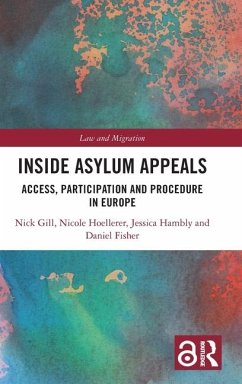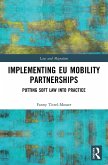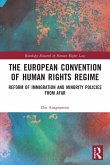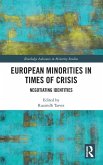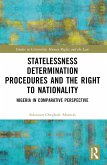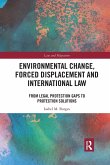Appeals are a crucial part of Europe's asylum system but they remain poorly understood. Building on insights and perspectives from legal geography and socio-legal studies, this book shines a light on what takes place during asylum appeals and puts forward suggestions for improving their fairness and accessibility. Drawing on hundreds of ethnographic observations of appeal hearings, as well as research interviews, the authors paint a detailed picture of the limitations of refugee protection available through asylum appeals. Refugee law can appear dependable and reliable in policy documents and legal texts. However, this work reveals that, in reality, myriad social, political, psychological, linguistic, contextual and economic factors interfere with and frequently confound the protection that refugee law promises during its concrete enactment. Drawing on evidence from Austria, Belgium, France, Germany, Greece, Italy and the United Kingdom, the book equips readers with a clear sense of the fragility of legal protection for people forced to migrate to Europe. The book will appeal to scholars of migration studies, legal studies, legal geography and the social sciences generally, as well as practitioners in asylum law throughout Europe and beyond.
This book is freely available as a downloadable Open Access PDF at http://www.taylorfrancis.com under a Creative Commons Attribution-Non Commercial-No Derivatives (CC-BY-NC-ND) 4.0 license.
This book is freely available as a downloadable Open Access PDF at http://www.taylorfrancis.com under a Creative Commons Attribution-Non Commercial-No Derivatives (CC-BY-NC-ND) 4.0 license.
'The authors of this impressively rich social-legal book dived deep into the functioning of the appeal hearings in the EU by observing them and interviewing both asylum seekers and decision makers. The book has both societal and scientific importance. Over a quarter of the initial decisions that were appealed in the EU were found to be deficient when they were re-examined in the appeal stage. However how the appeal-stage works in practice was until now under researched. By doing bottom up ethnographic and comparative research the authors fill this gap and shed light on amongst others, the routines and cultures, the power asymmetries, the plural ways of interpreting and the lived experiences. The book shows that although in theory a firm legal appeal system exists, in practice the legal protection of refugees in the EU is precarious and fragile. The book is indispensable food for thought for asylum practitioners, lawyers and judges and an invaluable contribution to the theory of the functioning of legal professionals.'
Professor Ashley Terlouw, Radboud University, The Netherlands
'Asylum seeking continues to be a dominant political issue throughout Europe, where the apparent consistency of approach implied by the development of the Common European Asylum System masks wide variations in national responses, and conceals the disjointed, inefficient, and often inhumane operations of those national systems themselves. This important book directly examines these incoherent, on-the-ground realities through extensive field observations of asylum procedures in seven European countries, and presents practical recommendations for their improvement.'
Professor Emeritus Anthony Good, University of Edinburgh, UK
Professor Ashley Terlouw, Radboud University, The Netherlands
'Asylum seeking continues to be a dominant political issue throughout Europe, where the apparent consistency of approach implied by the development of the Common European Asylum System masks wide variations in national responses, and conceals the disjointed, inefficient, and often inhumane operations of those national systems themselves. This important book directly examines these incoherent, on-the-ground realities through extensive field observations of asylum procedures in seven European countries, and presents practical recommendations for their improvement.'
Professor Emeritus Anthony Good, University of Edinburgh, UK

